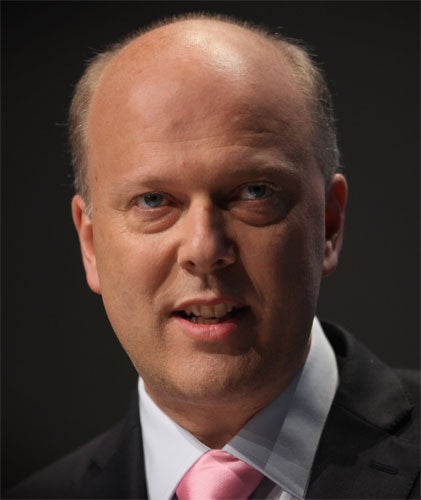Tories turn party-poopers to end era of cheap alcohol

Your support helps us to tell the story
From reproductive rights to climate change to Big Tech, The Independent is on the ground when the story is developing. Whether it's investigating the financials of Elon Musk's pro-Trump PAC or producing our latest documentary, 'The A Word', which shines a light on the American women fighting for reproductive rights, we know how important it is to parse out the facts from the messaging.
At such a critical moment in US history, we need reporters on the ground. Your donation allows us to keep sending journalists to speak to both sides of the story.
The Independent is trusted by Americans across the entire political spectrum. And unlike many other quality news outlets, we choose not to lock Americans out of our reporting and analysis with paywalls. We believe quality journalism should be available to everyone, paid for by those who can afford it.
Your support makes all the difference.Steep increases in the cost of super-strength lager and alcopops were promised by the Tories in a drive to combat binge drinking.
The first Budget after a Conservative election victory would include large rises in taxes levied on the products blamed for causing drunken violence.
Chris Grayling, the shadow Home Secretary, said that the cost of a four-pack of high-strength lager would increase from £6 to £7.33, while a four-pack of strong cider would go up from £3.64 to £4.38. The price of a large bottle of Smirnoff Ice would leap from £2.97 to £4.47.
Following reports that large cans of lager are on special offer in supermarkets for as little as 22p each, Mr Grayling announced that retailers would be banned from selling from alcohol at below cost-price. He said the moves were aimed at the "problem of 14-year-olds hanging about with bottles of super-strength beers or ciders". He said: "It's much too easy for them to get very drunk quickly and cheaply."
Mr Grayling promised the rises would not hit responsible drinkers or increase the cost of an "ordinary pint in the pub". But, he told the Tory conference in Manchester, "We'll call time on the drinks that fuel antisocial behaviour". Pledging to "tear up this government's lax licensing regime", he said councils would be given tougher powers to deny licences to pubs and clubs and to shut down those that sell alcohol to the under-18s.
The moves will face opposition within the drinks industry and attempts to ban cheap alcohol promotions could fall foul of European competition law.
But the chief executive of Alcohol Concern, Don Shenker, said the increases would deter teenage drinkers. He said: "Strong cider, strong beer and alcopops are some of the most irresponsibly priced and problematic alcoholic drinks available in Britain."
Mr Grayling also promised that a Tory government would impose "instant punishments" on youngsters guilty of antisocial behaviour. They include "grounding" troublesome children – ordering them to stay indoors apart from going to school – and forcing them to undertake community punishments such as cleaning up parks.
He launched a wide-ranging attack on the "broken" criminal justice system, protesting: "There are too many serious offenders getting away with it."
Mr Grayling promised to get rid of the "mountains of bureaucracy" swamping police and to attack the "caution culture" that meant serious offenders avoiding jail. Accusing Labour of losing control of the nation's borders, he insisted: "A Conservative government will be robust in the way it controls immigration. There will be no open door to Britain."
Mr Grayling claimed that Britain was still too soft on those who "spread a doctrine of hate" and announced he would immediately ban the extreme Islamist group Hizb-ut-Tahrir upon becoming home secretary. The party also promised to give greater powers to police to warn communities about dangerous criminals living in the area.
Dominic Grieve, the shadow Justice Secretary, claimed offenders enjoyed "automatic privacy" because of the Human Rights Act. He said the Tories would make it "crystal clear that protecting the public takes precedence over the privacy of criminals". He also committed the Tories to building more prison places to address overcrowding.
Join our commenting forum
Join thought-provoking conversations, follow other Independent readers and see their replies
Comments